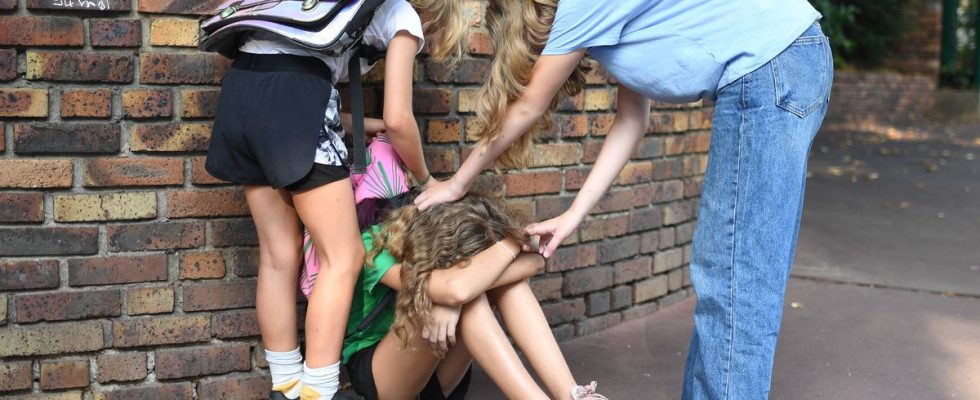The day against school bullying takes place this Thursday. For the occasion, Élisabeth Borne will launch a new national campaign intended to make adults aware of the voices of children who are victims.
The Prime Minister unveiled an interministerial plan to combat harassment at the end of September, promising a “general mobilization” against this “massive phenomenon”, including a single call number, 3018.
Focus on prevention
To show the involvement of the executive, Élisabeth Borne will go this Thursday to Claude Debussy college, in the fifteenth arrondissement of Paris, with Brigitte Macron and the Minister of National Education Gabriel Attal. She will provide a self-assessment grid to the students intended to “free further” their speech, before discussing with the college’s anti-harassment “ambassadors” as well as with the teaching teams of the “PHARe” system to fight against this scourge, become compulsory in every educational establishment.
All students from CE2 onwards have been invited since the start of the school year to complete an anonymous questionnaire to assess whether they are victims of school bullying. Two hours of school time are normalized for this purpose, between this Thursday and November 15, in order to emphasize the prevention and detection of harassment situations.
Harassment behind innocuous situations
The audiovisual campaign this year aims to highlight situations which may seem trivial but hide cases of harassment. In a video clip, three adults talk about Sacha. “I think school, Sacha, is less and less his thing,” says his mother. “Because school was our thing?” » a woman replies. “There are still problems there… I tried to talk about it but I was told that I was worrying for nothing,” adds the little girl’s mother. “You have to spend your youth,” adds a man, before images of the little girl being pushed around by classmates calling her a “buffoon”. A visual repeats the insult of “boloss”. “It doesn’t seem so violent to you and yet the student concerned by these words is depressed,” we can read in the comments.
Last year, the campaign focused on a question aimed more at students: “What if the other was you?” “.

